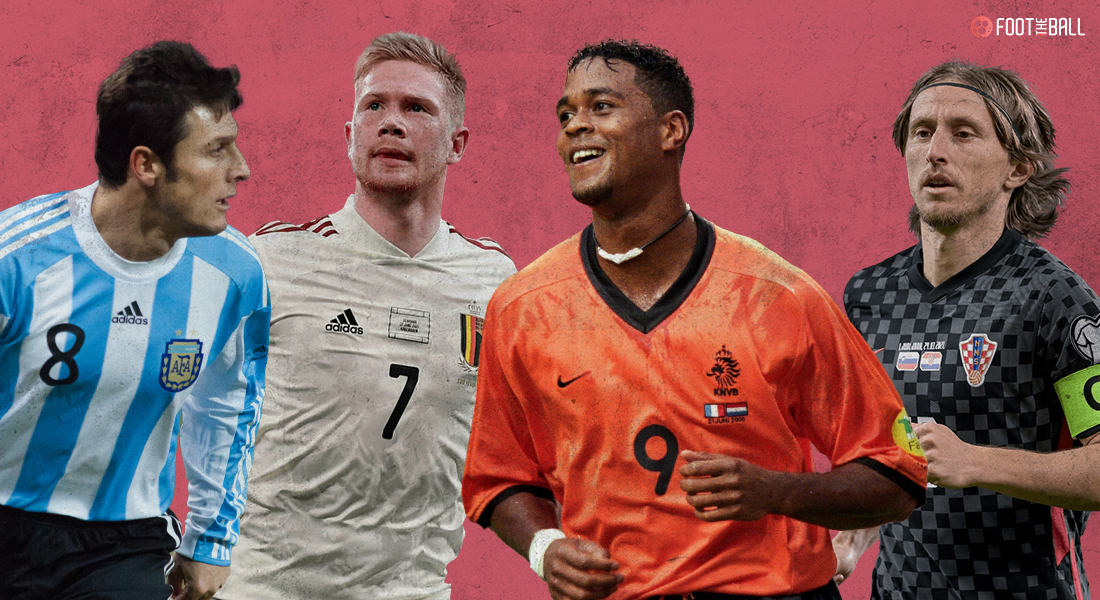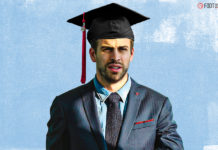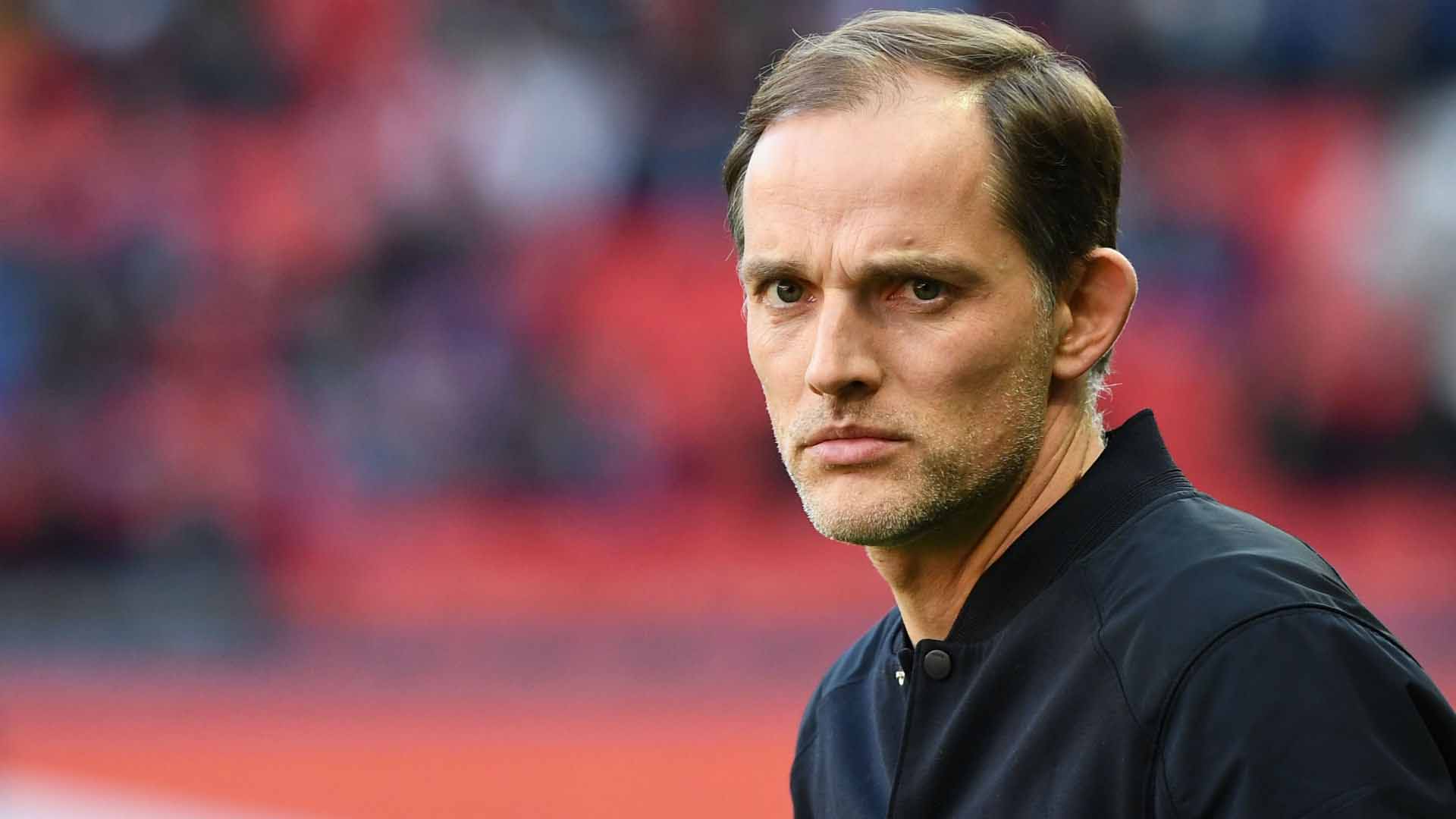Last night’s match between Belgium and France in the semi-final of the ongoing UEFA Nations League had a little bit of everything for everyone. Belgium are the number one ranked team in the world currently while France are the reigning world champions.
https://twitter.com/FootTheBall/status/1446215730794414101?s=20
The Red Devils took a 2-0 lead going into halftime before France levelled things up within a space of five second-half minutes. With the game into the final seconds of injury time, Theo Hernandez’s winner booked a ticket to the final against Spain on Sunday for Les Bleus.
However, it raised even more questions for Belgium and Roberto Martinez, as this marked yet another chance of a trophy gone.
Is Belgium's golden generation over? 😔 pic.twitter.com/SR1gvg3I6J
— ESPN FC (@ESPNFC) October 7, 2021
They have had one of the most exciting international squads for sometime now and are touted as “dark horses” at virtually every tournament.
Nevertheless, time is running out for this “golden generation” to prove their mettle and next year will provide one more chance. In that regard, FootTheBall looks at five “golden generations” who had all the talent and star names but none of the silverware.
NETHERLANDS 1994-2002
The Dutch had been one of the innovators of the game in the 1970s, reaching two consecutive World Cup finals in 1974 and 1978. However, their only triumphant tournament to date remains the Euro 1988 with the famed trio of Marco van Basten, Ruud Gullit and Frank Rijkaard. The team entering the 90s were tipped for even more success but it did not come to fruition.
#OnThisDay in 𝟙𝟡𝟠𝟠! 💭
Well… you know what happened! 🏆
🔸 𝙴𝚄𝚁𝙾 𝟷𝟿𝟾𝟾 𝚠𝚒𝚗𝚗𝚎𝚛𝚜! pic.twitter.com/CZYT4tqnoF
— OnsOranje (@OnsOranje) June 25, 2021
A disappointing round-of-16 exit at the 1990 World Cup was followed by an inspiring run to the semi-finals at Euro 1992 that saw the emergence of Dennis Bergkamp. He was soon joined by several superstars, budding and established- Patrick Kluivert, Marc Overmars, the de Boer brothers (Frank and Ronald), Edgar Davids and others.
Netherlands, Euro '92. pic.twitter.com/7sWm8lbycB
— 90s Football (@90sfootball) June 21, 2021
They were all national champions with their clubs while several had been part of Ajax’s undefeated league campaign and Champions League win in 1995.
Netherlands’ opponents during those times were equally or even more packed with star names. Brazil were just entering their golden age that would culminate in World Cup success while France were sweeping up everything before them.
It was 21 years ago today when Italy's defence worked relentlessly and Francesco Toldo seemed unstoppable as they knocked the Netherlands out of Euro 2000 with 10 men.pic.twitter.com/NRjz9rgrdj
— The Blizzard (@blzzrd) June 29, 2021
1996 and 1998 saw penalty shootout exits to both of them in the Euro and World Cup respectively. The change of the millennium provided little respite as they lost to Italy at Euro 2000 on penalties once again in the semis. Failure to qualify for the 2002 World Cup proved a black spot on the proud country’s record and the rebuild was truly underway after that.
ENGLAND 2001-2010
The ‘golden generation’ most often talked about and fretted over. Heading into the 2000s, England had already made a habit of losing on penalty shootouts which had resigned their fans to watch their team suffer.
However, a crop of burgeoning talents and high-profile players featuring the likes of Ballon D’Or winner Michael Owen, Wayne Rooney, David Beckham, Frank Lampard, Steven Gerrard, Rio Ferdinand and more.
The start of the ‘Golden Generation’ of English football and probably their finest moment.
One night in Germany, during a World Cup qualifier in 2001, England ran riot.
A 5-1 win in Munich – legendary. pic.twitter.com/jPGceaRF2Q
— bet365 (@bet365) May 3, 2020
All of them would achieve immense success at club level but the international arena would prove far harsher. After exiting in the group-stage at Euro 2000, Sven-Goran Eriksson took over and the five years would be a mixed run. The Three Lions rose to number one in the world and made three successive quarter-final appearances in 2002, 2004, and 2006.
Wayne Rooney on England's golden generation:
🗣 "Rio Ferdinand, John Terry, Ashley Cole, Gerrard, Scholes, Lampard, Beckham, myself, Michael Owen. Our team then, if we had a Guardiola with that group of players, we'd have won everything, no doubt about it."
🏴 pic.twitter.com/kkZVfUXUPa
— Football Tweet ⚽ (@Football__Tweet) September 13, 2019
However, they each would have their own types of heartbreaks. The highs of qualifying for the World Cup in Asia met the bruising reality of the steam express that was Brazil. Euro 2004 saw yet another penalty shootout defeat to Portugal and the pair would meet again two years later at the same stage.
A controversial red card for Wayne Rooney in the second half caused outrage in the country before the curse of penalties struck again.
ON THIS DAY IN 2006, Cristiano Ronaldo scored the winning penalty vs England to take Portugal to the World Cup semis. pic.twitter.com/6vnAIwWZru
— TheCristianoFan 🇵🇹 (@TheCristianoFan) July 1, 2015
The nadir was reached at Euro 2008 which they failed to qualify for while the “ghost goal” against Germany in the round-of-16 at the 2010 World Cup saw the ‘golden generation’ finally capitulate.
ARGENTINA 2000s-2010s
It is suffice to say that the Albicelestes’ triumph at this year’s Copa America will be talked about and discussed for a long, long time. Not only was it Lionel Messi’s first trophy in a truly stupendous footballing career, the amount of suffering that the fans have had to go through is truly staggering.
After three Copa America heartbreaks, Leo Messi finally gets his 🏆💙 pic.twitter.com/x9bPj7T2lk
— ESPN FC (@ESPNFC) July 11, 2021
The five Copa Americas between 2004 and 2016 saw them lose four finals, two either side of a quarter-final exit in 2011. The 2004 and 2007 editions had names such as a young Messi, Javier Zanetti, Javier Mascheranho, Gabriel Heinze, Carlos Tevez, Diego Milito while the 2010s saw the group of Gonzalo Higuain, Angel Di Maria, Sergio Aguero.
CHAMPIONS! Chile defeats Argentina on PKs to win the Copa America Centenario for the 2nd straight summer. pic.twitter.com/Q7fWavY8ge
— SportsCenter (@SportsCenter) June 27, 2016
Furthermore, three of those defeats came via penalty shootouts, as Brazil and Chile bested them every time. The World Cups were not their friends either as the best result was once again, a loss in the final in the 2014 edition against Germany. They had a horrific campaign in 2018, being rolled over by France in the round-of-16 with a 4-3 loss. Messi had contemplated retirement a couple of times but eventually chose to stick around.
#FRA WIN! #FRAARG // #WorldCup pic.twitter.com/zejq1TCOxw
— FIFA World Cup (@FIFAWorldCup) June 30, 2018
Though they were finally able to get the better of their arch-rivals this time, there is no doubt that the ‘golden generation’ of previous years should have achieved much more.
CROATIA 2012-2018
Their fairytale run to the final of the World Cup in 2018 was built upon years of solid team building and highly skilled players plying their trade at the best clubs. Mario Mandzukic, Ivan Rakitic, Dario Srna, Vedran Corluka, and of course Luka Modric. The most refreshing thing about the whole setup was that this team were the true definition of “all for one and one for all.”
One of Croatia's Russia 2018 heroes 🥈
Happy birthday, @MarioMandzukic9 🇭🇷#WorldCup | @HNS_CFF pic.twitter.com/DGxI3WPOA5
— FIFA World Cup (@FIFAWorldCup) May 21, 2019
Every player on the team worked the hardest and were clear in what their fixed roles were on the pitch against more heralded opponents. A group-stage exit at Euro 2012 saw Mandzukic score two of Croatia’s four goals in total. The 2014 World Cup saw another group-stage bow out but the loss against Brazil was controversial for a number of decisions going against them.
The moment all of Croatia was sent into sheer joy…#CROENG // #WorldCup pic.twitter.com/QtXtcd6pU4
— FIFA World Cup (@FIFAWorldCup) July 11, 2018
Dejan Lovren, Ante Rebic, Ivan Perisic had joined up with the team by then and Euro 2016 saw them top their group which contained defending champions Spain. A narrow round-of-16 loss to eventual champions Portugal after extra-time was enough to spur them to their greatest run ever two years later. The appointment of Zlatko Dalic was key with several strong and technically gifted players linking up.
4 – Ivan Perisic has scored in each of the last four major international tournaments (2014 World Cup, EURO 2016, 2018 World Cup and EURO 2020), becoming the first Croatian to score in four separate such tournaments. Rocket. #CRO #EURO2020 pic.twitter.com/vlkh8gsfY4
— OptaJoe (@OptaJoe) June 18, 2021
Croatia won two consecutive penalty shootouts against Denmark and Russia respectively after progressing from the group stages. The semi-final showdown with England produced one of the greatest results in the tournament’s history as goals from Perisic and Mandzukic saw them through. Though they could not win, Modric did pick up the Golden Ball, becoming the first-ever Croatian to do so.
BELGIUM 2014-
The Red Devils were one of the surprises yet youthful entrants for the 2014 World Cup after missing out on qualification for the 2006 and 2010 editions. The squad had 10 players aged 25 and under including all the faces who are now regulars. Romelu Lukaku, Kevin De Bruyne, Jan Vertonghen, Thibaut Courtois, and Eden Hazard. They made it till the quarter-finals, losing to finalists Argentina.
When football hurts. ⚽💔 #WALBEL #EURO2016 pic.twitter.com/YT0O5LefBE
— UEFA Nations League (@EURO2024) July 1, 2016
The 2016 Euro saw yet another quarter-final appearance before a surprise defeat to Wales which cost then-manager Marc Wilmots his job. Current manager Roberto Martinez took over and guided them to a third-place finish at the 2018 World Cup where many felt they should have achieved much more. Thierry Henry joined the coaching department as a high profile appointment and Lukaku has been an absolute goal-scoring machine for Belgium.
🇮🇹 MOVING ON 🇮🇹
Italy are headed to their first European Championship semifinal since 2012 after defeating Belgium 2-1. #EURO2020 #ITA #BEL pic.twitter.com/Gfc8IkXAUG
— Sportsnet (@Sportsnet) July 2, 2021
They started Euro 2020 in fine fashion, going undefeated through their group before a 1-0 win over defending champions Portugal. However, a 2-1 defeat to Italy in the next round put paid to their hopes, despite Belgium dominating possession and shots over the course of the match.
Though there is still time for the team to win given their players are still at peak powers, Belgium need to start converting star power into something concrete.




